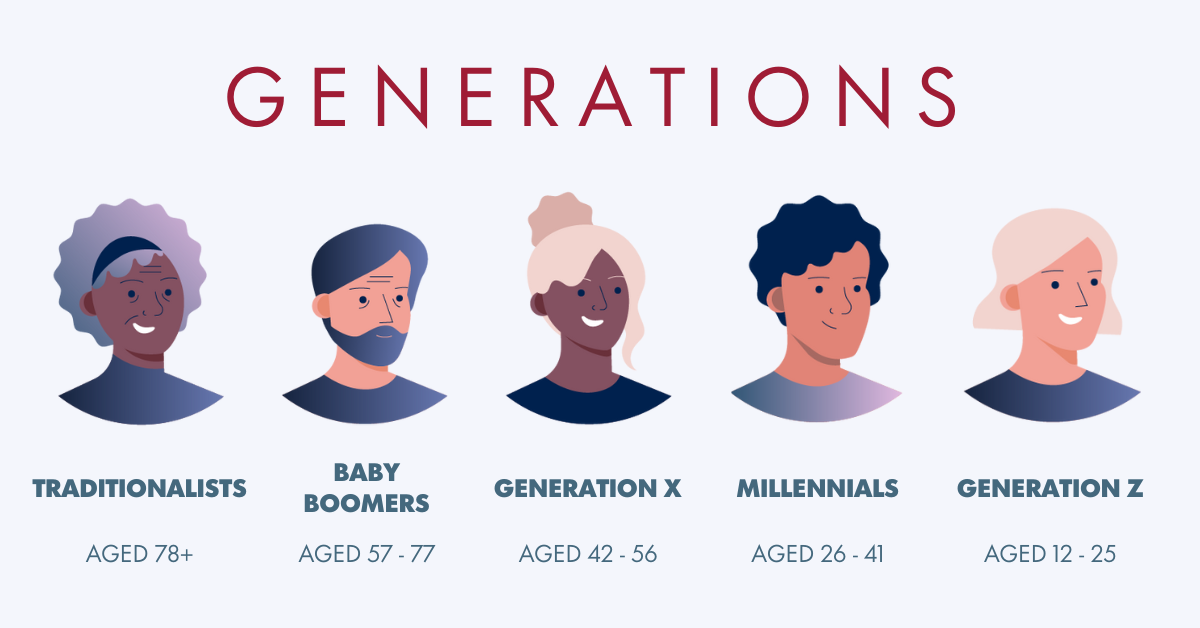We have Gen X, Gen Y, Gen Z … and now, even my own Gen Z daughter wonders whether the incoming Generation along with the others, should be referred to as Gen F*cked. With close to 80% of employed adults as shift workers, and 75% of those leveraging solutions like early wage access to pay for groceries, rent, gas, and childcare – it’s clear we need to do a better job supporting today’s workforce.
Could smarter, more personalized compensation be the solution to avoid a financially f*cked generation? Let’s start with a look at the landscape.
HR in the Hot Seat with Retention Down and Financial Anxiety Up
All employers will continue to experience challenges with retention. We recognize there’s been a shift from the great resignation for many industries, but there are many companies still hurting when it comes to retention, especially of their most talented or critical employees. And that power swing back to employers is about to end for all as employees start an all-out tug of war. 2021-22 was all about employees, 2023 saw employers take back some power, but in 2024, employees will rise again in a big way. Increased turnover coupled with employee demands for flexibility will come to a head for most companies.
PwC’s 2023 Employee Financial Wellness Survey showed that 60% of full-time employees are stressed about their finances - and that financial stress impacts numerous aspects of employee well-being. In the past year, financial stress and money worries have had a negative impact on employee’s sleep (56%), mental health (55%), self-esteem (50%), physical health (44%), and their relationships at home (40%).
Enter Gen F
With high inflation, stress in the housing market, uncertain investment market conditions, the drive to replace people with machines, and huge geopolitical turbulence, it’s going to be even harder to raise up the next generation of workers without the aforementioned stressors taking over. If things don’t change soon, the next generation will be known as Gen F because every generation after Gen X is going to be f*cked. And, as the last sentence indicates, Gen F won’t just include newborn babies but it will also gobble up the Millennials, Gen Z, and Gen X. It’s a hungry category.
Flexibility is the Name of the Game
When financial stressors increase, compensation comes into focus. Employers will have to focus on meeting financial demands, but they can relieve some of this burden for both them and the employees by making their compensation more flexible. What does flexibility mean? Pay dates that match an employee’s expense timing and, at times, compensation that can be accelerated in time to help these employees avoid expensive intermediaries. Forward-thinking compensation solutions show employees their employers or future employers give a shit and want them to stick around. Of course, some of these benefits can and probably should be tied to tenure and/or criticality of role.
Compensation is a Caterpillar
Compensation will continue to undergo a metamorphosis, adapting to the diverse needs and expectations of a dynamic workforce. In 2024, the workforce will be more diverse than ever, spanning different generations and working preferences. IDC shows that 60% of the US workforce will be working remotely by 2024.
Flexibility is the key to meeting the diverse needs of this workforce. Companies are recognizing the importance of tailoring compensation packages to individual needs rather than adopting a one-size-fits-all approach. In 2024, organizations will be expected to embrace flexible compensation models that empower employees to choose the components of their compensation package. This might include a mix of base salary, bonuses, stock options, health benefits, and more. Employees will value the ability to customize their compensation to align with their unique priorities and lifestyles - and be loyal to employers who give them this flexible financial support. This means that compensation must reflect not just WHAT you get paid, but HOW you get paid!
We’re seeing significant traction with more effective compensation – like smarter bonuses that vest over time but are paid up front. Unlike traditional bonuses, smart bonuses reward employees with immediate cash and retain them to earn the bonus over time. This covert retention strategy aligns with the performance and growth trajectory of the employee. Our leadership in this category has given us the inside track of picking these types of bonuses as a lookout for 2024!
The Tech-Evolution of Compensation and Payroll
When it comes to how compensation is delivered, payroll is clearly a large component. But we see it as the launching point to drive stronger engagement with employees and greater value from compensation. A Quickbooks survey showed that more than 34% of business owners still use spreadsheets to manage their payroll manually - yet the American Payroll Association shows that automation can reduce payroll processing costs by 80%.
The implementation of flexible, customizable, smarter compensation will be facilitated by advancements in HR technology. Automated systems, driven by AI, can streamline the process of tailoring compensation packages, ensuring accuracy, and communication transparency. This modernization may come with the thinning of some teams, as technology steps in to automate some previously resource-intensive roles.
And there’s definitely a desire from SMBs to modernize their payroll. A recent Keep survey showed that 70% of SMB owners are either unpleased or not excited by their existing payroll platform and 58% are looking to switch payroll platforms in the near future. The same survey showed that 63% of SMB owners are interested in more variable pay features such as paying employees in real time.
Looking into 2024, the future of compensation is without a doubt transforming. Embracing flexibility, customization, and innovative concepts like smarter compensation positions organizations to attract, retain, and motivate the best talent for their business. By aligning compensation structures with employee performance and the diverse needs of the workforce, companies can create a more engaged and committed team - and hopefully a more prosperous and peaceful future generation.





